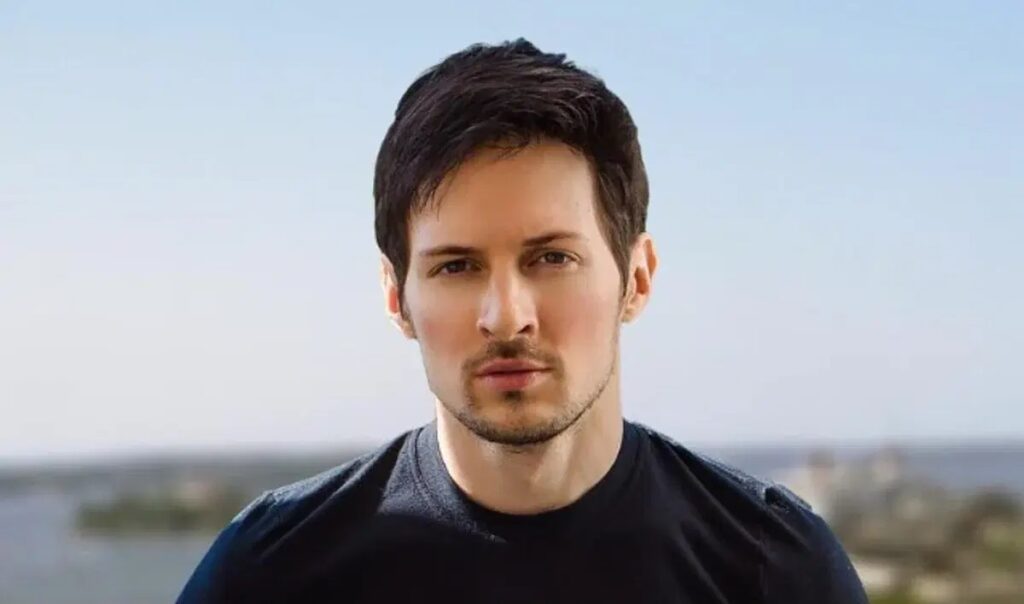Russian-born Pavel Durov, dressed in black and sporting dark glasses, briskly exited the Paris courthouse and stepped into a waiting car after being charged, though he was allowed to go free under judicial supervision.

Pavel Durov was released on bail with a conditional requirement of five million euros.
Paris: Telegram CEO Pavel Durov was released on bail Thursday after being detained in France for four days. Durov, who now faces a potential trial over illegal content shared on his messaging app, is prohibited from leaving the country.
Durov, originally from Russia, appeared in court on Wednesday dressed in black, wearing dark sunglasses. After being charged, he was allowed to leave under judicial supervision. Video posted on social media showed him thanking his lawyer before swiftly entering a waiting car, assisted by what appeared to be a bodyguard.
The 39-year-old tech mogul faces multiple charges, including failing to prevent extremist and illegal content on Telegram, which boasts over 900 million users but has faced growing controversy. His lawyer, David-Olivier Kaminski, dismissed the charges as “absurd,” asserting that Telegram complies with European digital regulations.
In Moscow, Kremlin spokesman Dmitry Peskov warned France against turning the case into “political persecution,” stressing Durov’s Russian citizenship and stating that the Kremlin would closely monitor the situation. Support for Durov also came from fellow tech titan Elon Musk, who posted under the hashtag #FreePavel and shared a meme on his platform, X, mocking France’s national motto.
Durov was arrested late Saturday at Le Bourget airport near Paris and questioned by investigators in the days that followed. He was released on a €5 million bail under the conditions that he must report to the police twice weekly and remain in France, according to Paris prosecutor Laure Beccuau.
The charges against Durov involve alleged crimes committed by an organized group, including “complicity in managing an online platform to facilitate illegal transactions,” which could lead to a 10-year prison sentence and a €500,000 fine if convicted. Additional charges include refusing to provide documents requested by authorities and disseminating child pornography, as well as drug trafficking, fraud, and money laundering.
The Paris prosecutor revealed that French authorities had been alerted to Telegram’s “near total absence of response” to official requests, leading to the opening of an investigation in February 2024. The case is expected to proceed to trial.
Separately, Durov is under investigation for allegedly committing “serious acts of violence” against one of his children during a visit to Paris with his ex-partner, who filed a criminal complaint in Switzerland last year.
Durov, who founded Telegram after leaving Russia a decade ago due to a conflict over ownership of his first project, VKontakte, holds citizenship in Russia, France, and the UAE, where Telegram is headquartered. His wealth is estimated at $15.5 billion by Forbes, though he is known for promoting an ascetic lifestyle.
Questions have arisen regarding the timing and circumstances of Durov’s detention, with supporters viewing him as a defender of free speech, while critics argue he allowed Telegram to spiral out of control. Le Monde reported that Durov met French President Emmanuel Macron multiple times before being granted French citizenship in 2021 through a special procedure for individuals deemed to have made significant contributions to France.
The Wall Street Journal reported that Macron once suggested Durov relocate Telegram’s headquarters to Paris, but Durov declined. Both Pavel and his brother Nikolai, the technical mind behind Telegram, have been wanted by French authorities since March.
Durov’s departure from Russia was reportedly less sudden than previously thought. According to leaked data from the Vazhnye Istorii news site, he visited Russia more than 50 times between 2015 and 2021, raising questions about his ties to Russian authorities.
Meanwhile, a UAE government official stated that the country “prioritizes the welfare of its citizens” and is “in touch with the French authorities about this case.”












